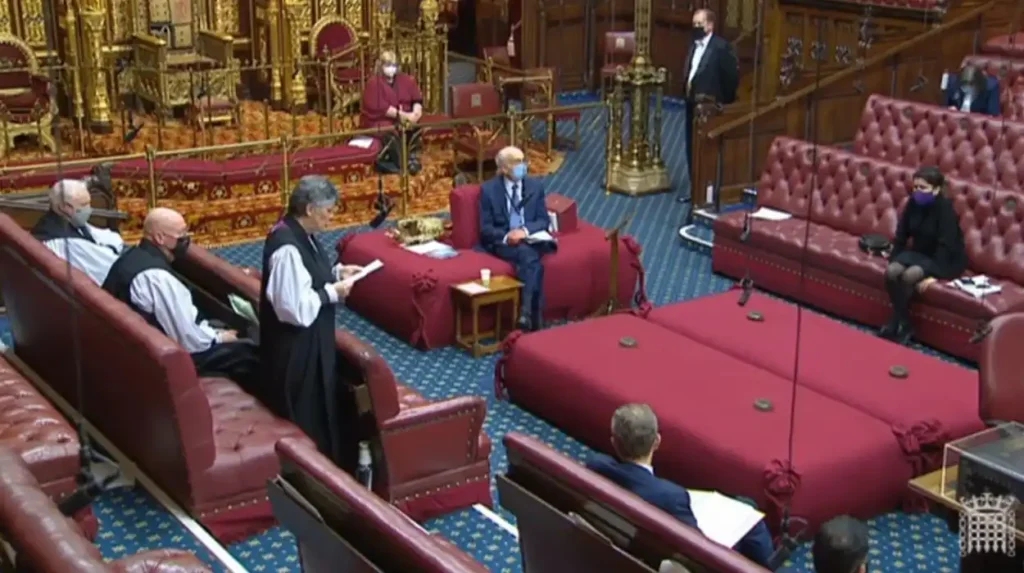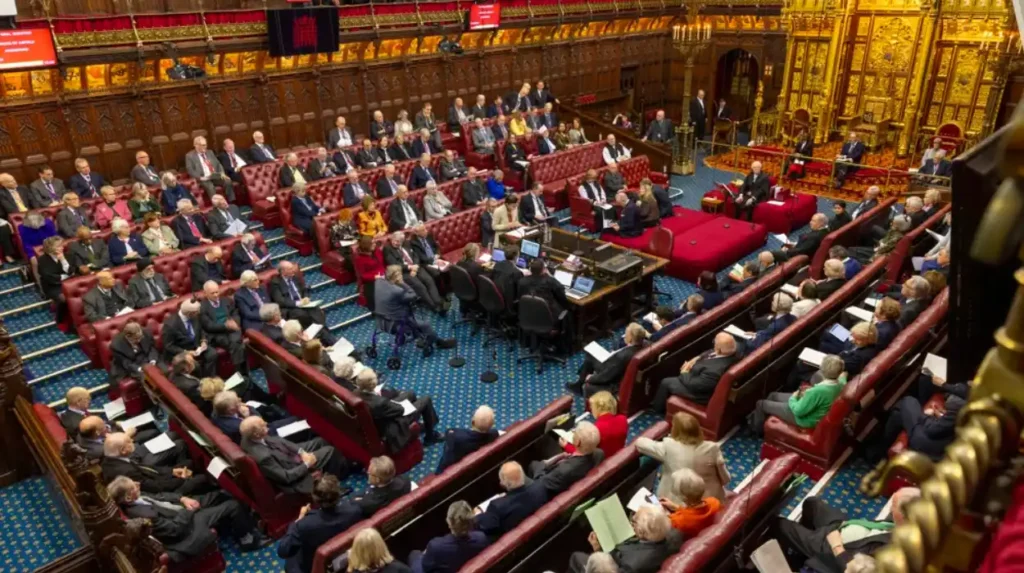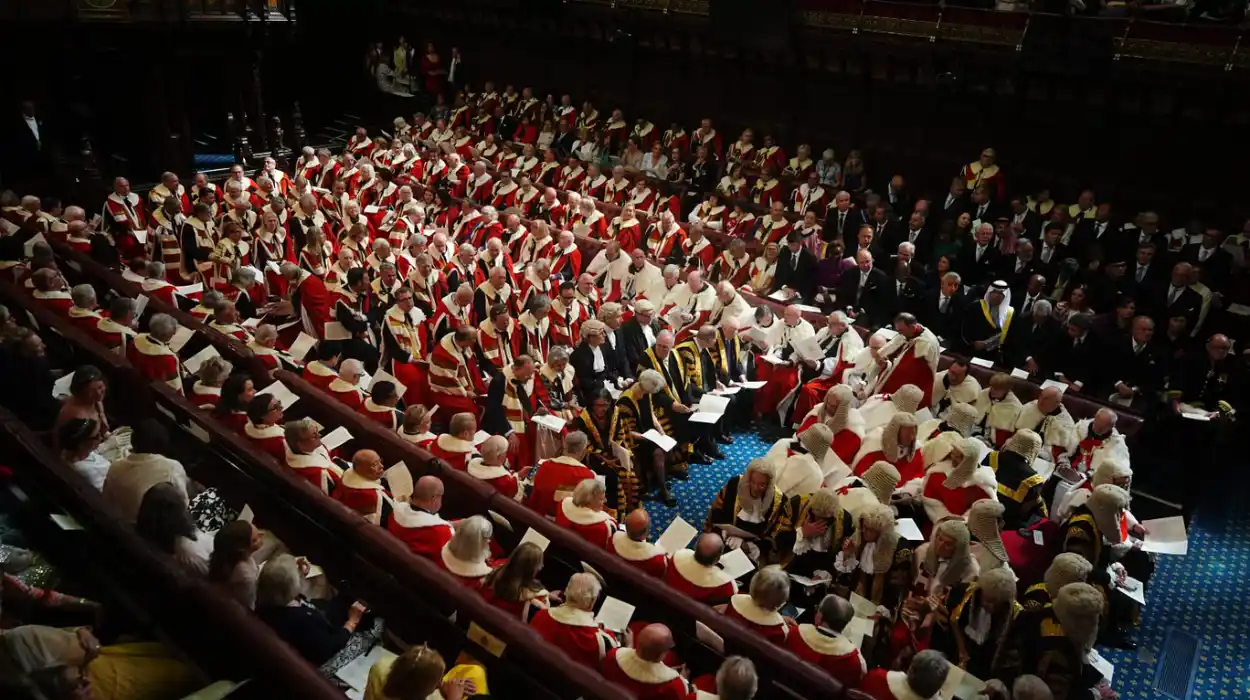The upper chamber of the United Kingdom is home to a unique category of individuals not found in any other democratic legislature: the Lords Spiritual, made up of 26 bishops of the Church of England who also sit (and vote) as members of the House of Lords. Their presence raises a familiar question: do they truly have power in British politics today, or is their role mainly ceremonial?
In this article we explain who the Lords Spiritual are, the legal basis for their seats, to what extent they exude influence, what constrains them, how debates over current reform might change their circumstances, and what their impact on British politics is overall.
In short, they technically have the same constitutional powers as any other peer by virtue of being a member of the House of Lords, but their agency is more persuasive and deliberative than instrumental; their influence is also constrained constitutionally, prioritizing the elected House of Commons.
Who are the Lords Spiritual?
The Lords Spiritual consist of senior bishops of the Church of England, and they are voting members of the House of Lords. The Archbishops of Canterbury and York and the Bishops of London, Durham, and Winchester have seats in the House of Lords by right. The other 21 bishops are the diocesan bishops who have been in their episcopal role the longest. In total, the Lords Spiritual can have 26 bishops sitting at any one time. They begin every business day with prayers and are also involved in all the House’s committees and legislative activity.
What formal powers do they hold?
Lords Spiritual are formally equal to any other peer: they can speak, table, and vote on amendments; vote on bills; and serve on committees. All types of limitations on their votes or speeches are removed. So, if you’re asking, do they have power? The answer in a strictly formal sense is yes—they have the full equality of legislative powers enjoyed by any peer in the Lords.
The Lord’s powers are limited overall
As a member, the House of Lords operates under clear limits both legally and conventionally:
- Money bills (i.e., taxation and public expenditure) are privileged: there can be no amendments and no delay longer than 1 month.
- The Parliament Acts of 1911-49 mean that the Commons can ultimately pass most public bills without the Lords consent if certain conditions are satisfied (which cement Commons primacy).
- The Salisbury-Addison convention advises that the Lords should not block bills from the Government manifesto (but they may scrutinize and amend).
To be clear: no peer—bishop or otherwise—can block the agenda of the elected House. The Lords Spiritually participate in the real strength of the Lords: thorough scrutiny, revising, and persuading.

How do Lords Spiritually exert influence in practice?
1) Scrutinizing and revising
Bishops contribute to debates often, especially on matters with ethical, social, or community dimensions; family policy; poverty; asylum; education; health; and criminal justice. Bishops can encourage amendments or compromise through their speeches and work across party lines, which improve drafting, moderate unintended consequences, and illuminate moral issues that would otherwise go unexamined.
There is a perception that the House of Lords is a chamber where expertise and practice can shift debate. Bishops are part of that ecosystem and can lend moral perspective on “good” scrutiny through their character and experience.
2) Committee work and convening
Select committees in the Lords gather evidence from expert witnesses drawn from all corners of society. If bishops serve on or contribute to committee work, they have the ability to lift community-level knowledge from their dioceses and magnify the evidence of the voluntary sector. This kind of influence is soft power; it does not compel the government, but it directs attention to the reality of impacts.
3) Public voice with moral capital
Bishops have influential public roles through their pastoral work; their contributions can generate media interest and frame debates around moral issues. That kind of publicity can allow ministers to think again about drafting, start accepting government amendments, or have a conversation across the House of Lords and the House of Commons. Once again, this influence is distinct from control: it is persuasion with procedural parliamentary maneuvering.
Are the Lords Spiritual party-political?
The bishops do not take party whips. They vote on their own merits and represent pastoral and ethical concerns, and not party platforms. They carry their independence with them, which gives them credibility in areas like social capital, care and poverty, refugees, and criminal justice, where they have built local diocesan networks that provide a grounded evidentiary basis for the work they do. However, independence has its limits as to how much they will influence partisan outcomes. Success in delivering results requires coalitions with crossbenchers, independents, and reform-minded party peers.

Current reform and debate (2024-2025): why this is important now
The composition and powers of the House of Lords are under active consideration by parties, and the bishops are part of that conversation:
- To have women bishops, Parliament has extended the fast-track provisions so that vacancies can continue to be filled by women bishops quickly reaching a point and advancing their agenda to secure a better gender balance in the Lords Spiritual. The Extension Act received Royal Assent on 16 January 2025.
- Proposals to remove or reduce bishops: In early 2025, Harriet Harman introduced an amendment calling for proposals to remove the Lords Spiritual’s automatic seats (whilst allowing individual bishops to be appointed like any other life peer). In a separate episode, peers voted against reducing the number of bishops from 26 to five in March 2025. These episodes illustrate that reform is alive but a long way from being settled.
- Wider Lords reform: There are ongoing discussions about the chamber’s size, appointments, and hereditary peers; the government has signified it is content to revisit reform, although it has not delivered a comprehensive blueprint yet. Any future reforms to the Lords could take a broad constitutional approach and reconsider religious representation as part of the wider package.
- The status quo remains: 26 bishops are sitting and voting with full Lords powers, unless any future statute changes this.
Are they undemocratic – and does it matter for power?
Critics of the Lords Spiritual argue that automatic seats for one church in a religiously plural and largely secular society are anachronistic. Campaigners in favor of reform argue that expertise and moral insight could be recruited through independent appointments without privileging any particular faith. Those in favour argue that bishops are non-partisan and offer local expert understanding, and the Lords itself is not designed for democratic representation per se, rather as the vehicle for scrutiny and revision. The fairness controversy directly intersects with reform momentum, which, when successful, could modify or abolish the bishops’ institutional power. However, their legal and voting rights remain secure for the time being.
Do Lords Spiritual have any real power in politics?
Yes, but Lords’ power. They have all the same formal legislative powers as any lord in the House of Lords to speak, amend, and vote on each piece of legislation and to influence the committee work. In practice, however, their influence is determined by issues and coalitions, and they again operate in a House where they are both legally and conventionally constrained to allow the elected House of Commons to have the final say, especially in financial matters and when it relates to manifesto pledges. In relation to issues of morality, social justice, or community, bishops can be influential, but where the government has a clear mandate and the Commons is resolute, their role can only be advisory and revisionary, rather than central.

